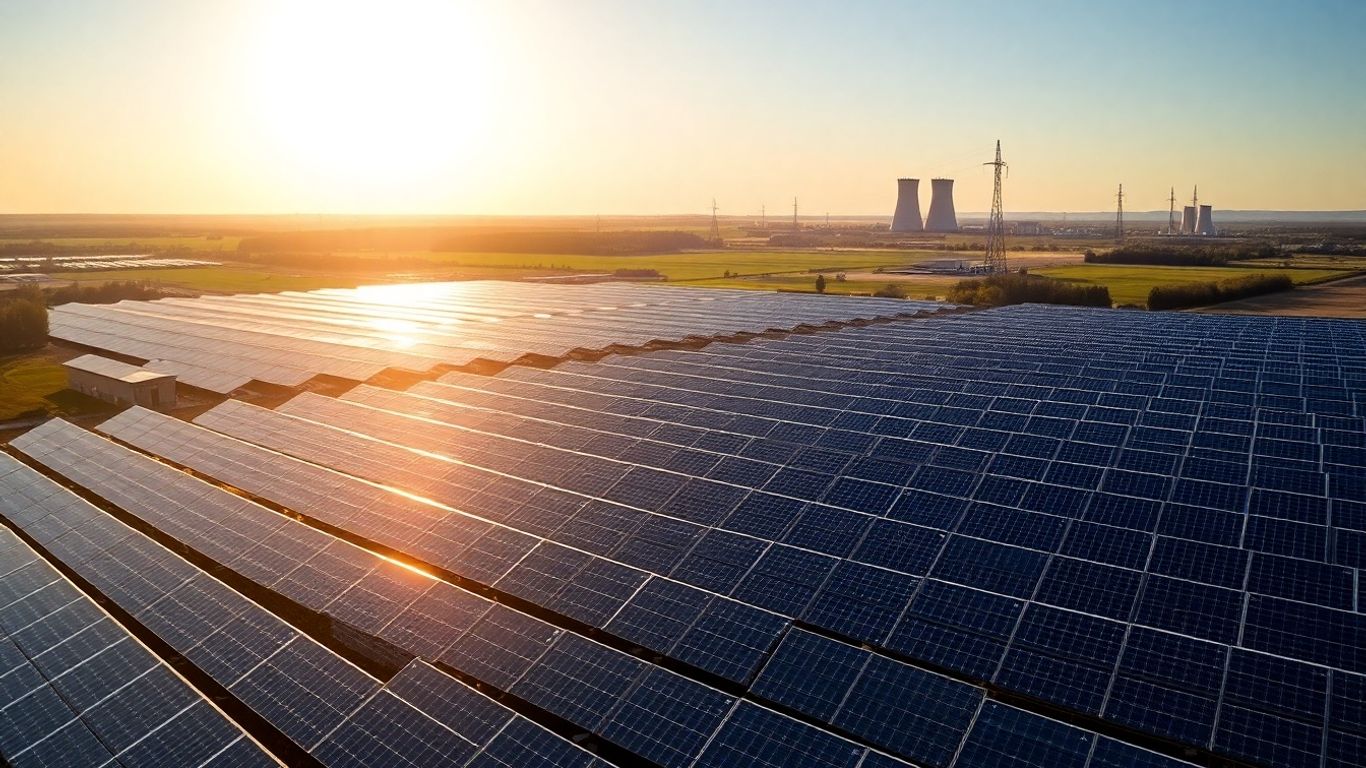Romania is actively reshaping its energy landscape, balancing the integration of renewable sources with the continued reliance on traditional power generation and strategic nuclear development. Recent developments highlight a multi-faceted approach to ensuring energy security while pursuing decarbonization goals.
Key Takeaways
- Romania commissions a new 27 MW solar farm, boosting its renewable energy capacity.
- The country has secured an agreement to extend the operation of several coal-fired power plants, mitigating immediate blackout risks.
- A significant shift in nuclear energy plans sees the U.S. replacing China as a partner for the Cernavoda nuclear project.
Solar Power Boost
Electrica, a major energy provider in Romania, has commissioned a new 27-megawatt (MW) solar farm. This development marks a step forward in the country’s efforts to increase its renewable energy portfolio and reduce its carbon footprint. The addition of this solar capacity contributes to Romania’s broader energy diversification strategy.
Extending Coal Plant Operations
In a move to avert potential blackouts and stabilize electricity prices, Romania has reached an agreement with the European Commission to extend the operational lifespan of several coal-fired power units. Originally slated for phase-out in 2026 as part of its EU recovery funds package, some units will now continue operating until the end of 2026, with others extended to the end of 2029. This postponement is intended to provide Romania with crucial time to transition to alternative energy sources, including gas-powered and renewable generation, while avoiding significant financial penalties from the EU.
Nuclear Project Partnership Shift
Romania’s plans for its Cernavoda nuclear power plant are undergoing a significant geopolitical shift. The U.S. has stepped in to replace China as the primary partner for the construction of two additional reactors and the refurbishment of an existing unit at the plant. An intergovernmental agreement has been initialed between U.S. Energy Secretary Dan Brouillette and Romania’s Minister of Economy, Energy, and Business Development Virgil Popescu. This collaboration is set to leverage U.S. expertise and technology, marking a new chapter for Romania’s nuclear energy sector.
These concurrent developments underscore Romania’s complex energy strategy, aiming to secure a stable power supply while navigating the transition towards a more sustainable energy future.
Sources
- Electrica commissions 27-MW solar farm in Romania | Solar Power News, Renewables Now.
- Romania agrees to extend coal-fired plants’ operation, reducing blackout risks, ETEnergyworld, ET EnergyWorld.
- U.S. replaces China on Romania’s Cernavoda project — ANS, American Nuclear Society.






